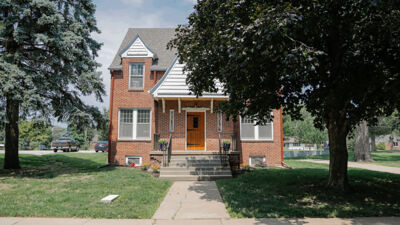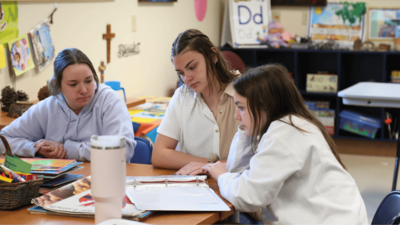Developmental Psychology and Understanding Growth

Developmental psychology is the study of how people grow and develop, as well as attempting to explain human behavior throughout their lives. The scope of this topic is very large, as it includes all of the changes people go through from their conception to their death. The three goals of developmental psychology according to Simply Psychology, are to describe, explain and optimize development. Studies include considering what contributes to development, including their genetics and the environment an individual grows up in.
Psychology students in this field study the different stages of growth. These are infancy (birth to the acquisition of language), childhood (approximately ages 2- 12), adolescence (approximately ages 13-20) and adulthood. Psychology majors at Concordia University, Nebraska are required to take a class called lifespan development which relates this this subject. In lifespan development, students study theories and practical applications of development. They study the physical, cognitive, social, and personality development in different stages of life.
There is also the option of three more developmental psychology classes at Concordia. At least one of these is required for psychology majors and all are offered. These class options include adult development and aging, child psychology and adolescent psychology and development. Taking these more specific classes allows students to get a more in-depth understanding of these specific stages in development.
This field studies change in people and why it occurs. This has given rise to many different theories and debates. PositivePsychology.com lists four of these theories. These are Bowlby’s Attachment Styles, Piaget’s Stage Theory, Freud’s Psychosexual Development Theory and Bandura’s Social Learning Theory.
John Bowlby developed attachment theory which hypothesizes that the need to form attachments is in all human beings from birth in order to ensure our survival and is essential for child development. Piaget’s Stage Theory states that children go through for stages. The sensorimotor stage where behaviors are triggered by stimuli, and the pre-operational stage with language but no logic are the first two stages. The last two stages are the concrete operational stage when logic begins, and the formal operational stage where abstract thought and skills arise.
According to Freud’s psychosexual theory, which has been largely contested in recent years, child development occurs in a series of stages, each focused on different pleasure areas of the body. Last, Bandura’s social learning theory suggests that children learn by watching others and how they react to situations, imitating what they see others do.
Be a part of the next class of psychologists.
There are many practical applications for developmental psychology, and applications for a psychology degree. For example, people going through therapy for trauma they have experienced or struggles they are having may need help through different developmental changes as they age, and therapists can be prepared for how people may experience changes.
Developmental psychology can be used to develop theories that will aid in parenting and teaching techniques. It also can help better diagnose and treat developmental disabilities. Human resources workers can use developmental psychology to understand the stage their employees are at within a company and there are many more directly relevant career paths to those interested in this form of psychology. Studying these topics can help people understand what to expect as they develop and as people around them change.
Within the field of social work there are career paths such as group home worker, rehabilitation counselor, behavioral specialist, social worker and caseworker that are all related to this topic. These careers often involve making decisions that will affect the child’s life going forward, deciding what is best for their development.
In education, a person has career options such as school counselor, early childhood educator, college professor, and special education teacher. All of these jobs use an understanding of development to better teach those in the earlier stages and help them grow. A school counselor will use their knowledge to help students navigate the challenges they may face during different stages of development.
Last, related career paths can be more focused on theoretical psychology such as being a research assistant, psychometrician or developmental psychologist. These people are more involved with researching, creating, and studying theories of development. A psychometrician applies psychological research to make recommendations on treatment and sometimes is involved in decisions regarding special education programs in schools.
There are some cases in which a master’s degree in developmental psychology could be beneficial for getting jobs that are more relevant to this field of study. Jobs that you can do with this degree include a postsecondary psychology teacher, substance abuse counselor, behavioral disorder counselor, mental health counselor, rehabilitation counselor and marriage and family therapist. Many of these careers are focused on more specific and detailed forms of counseling. The fields of substance abuse counselor, behavioral disorder counselor and mental health counselor stand out as the estimated job growth is 25% in the next five years. These careers help people who are struggling with their place in life. People in these positions have the potential to make a big difference in the lives people.
Related Stories


